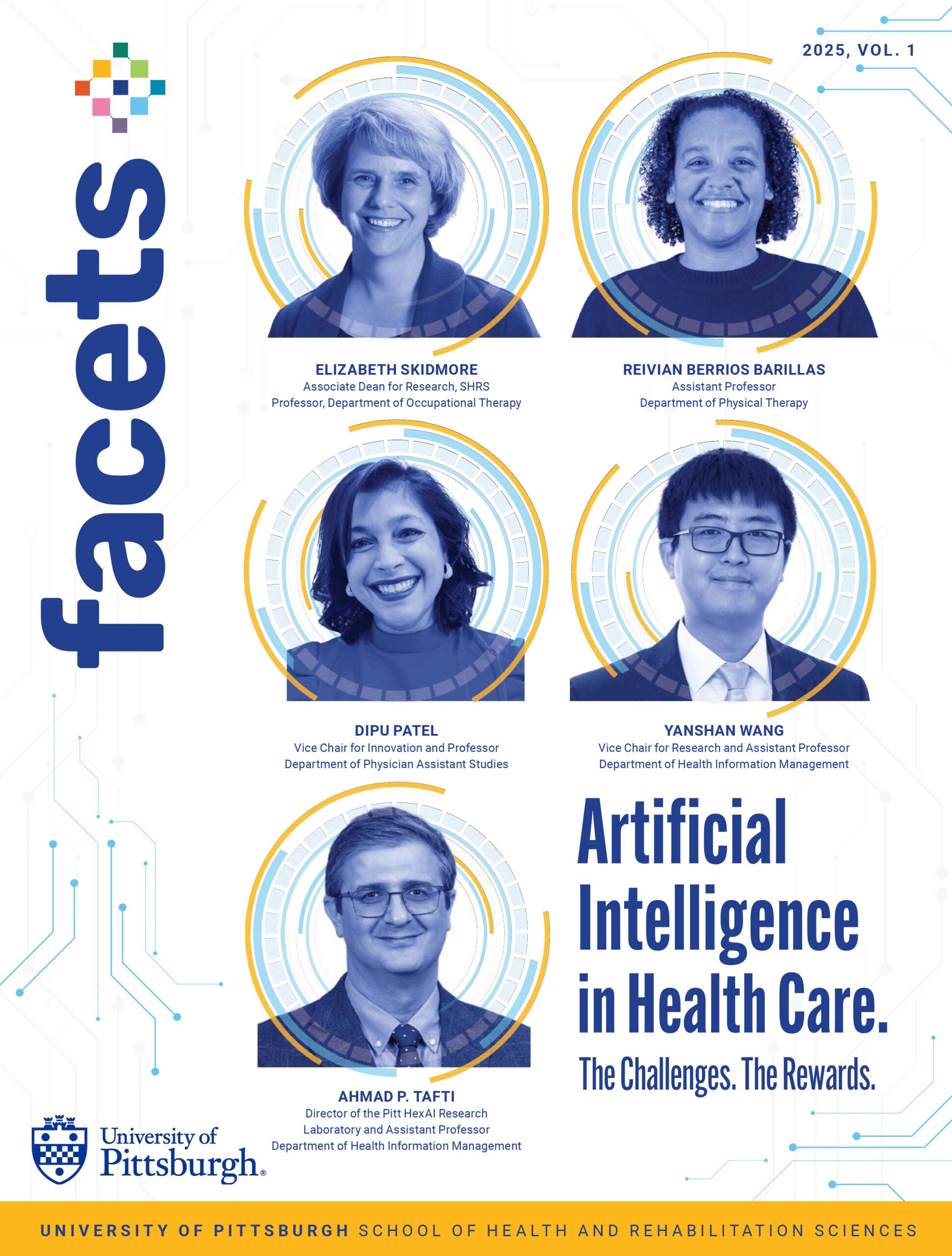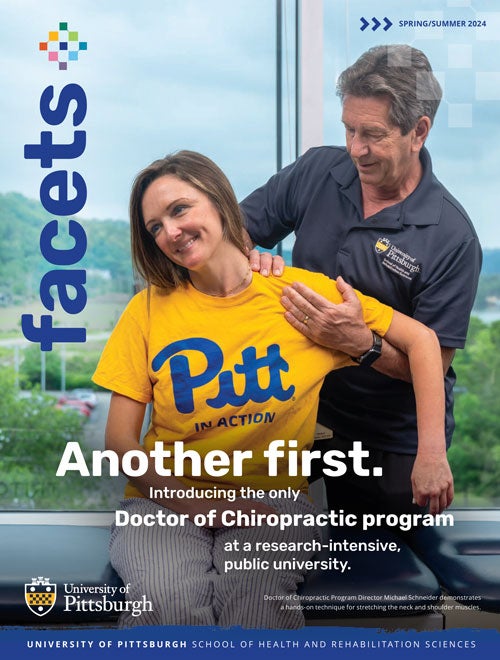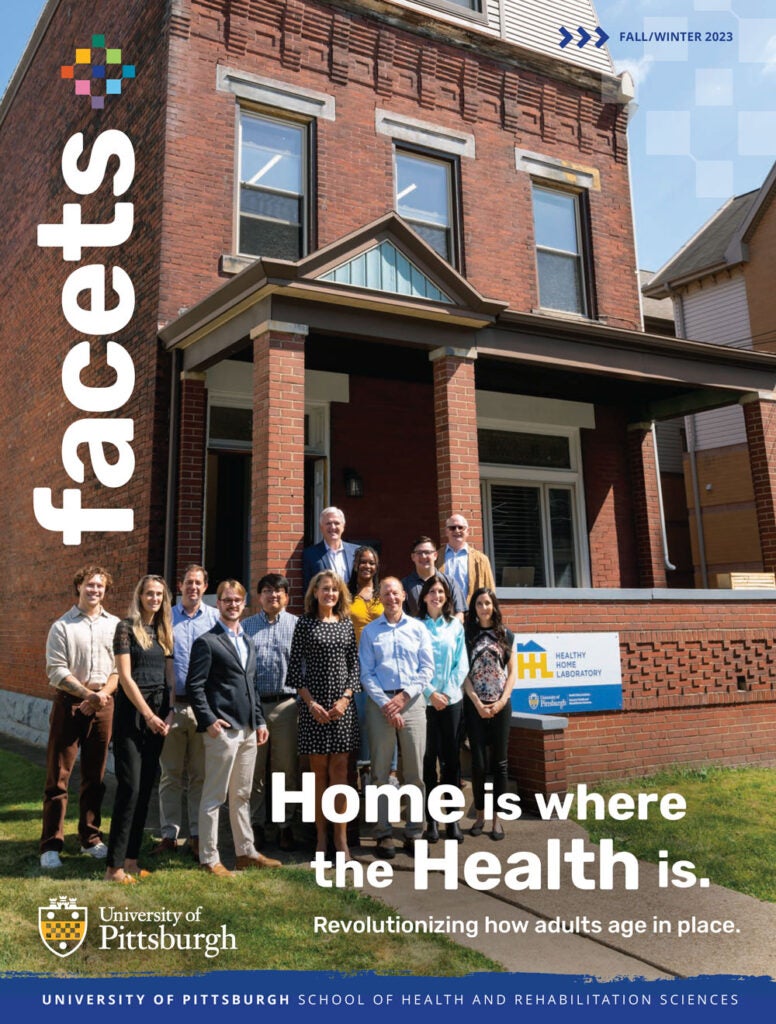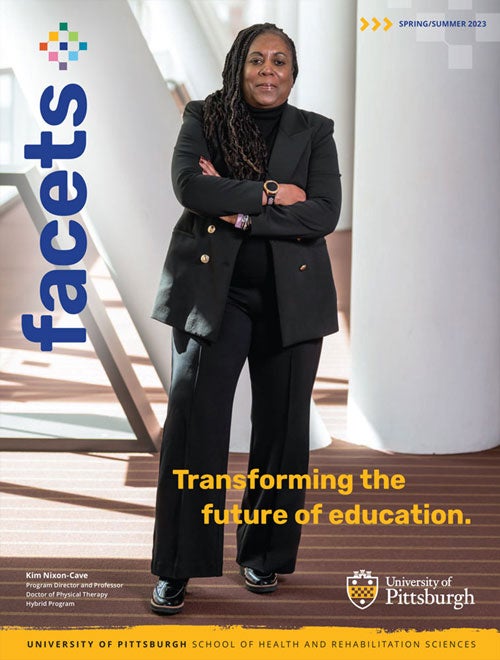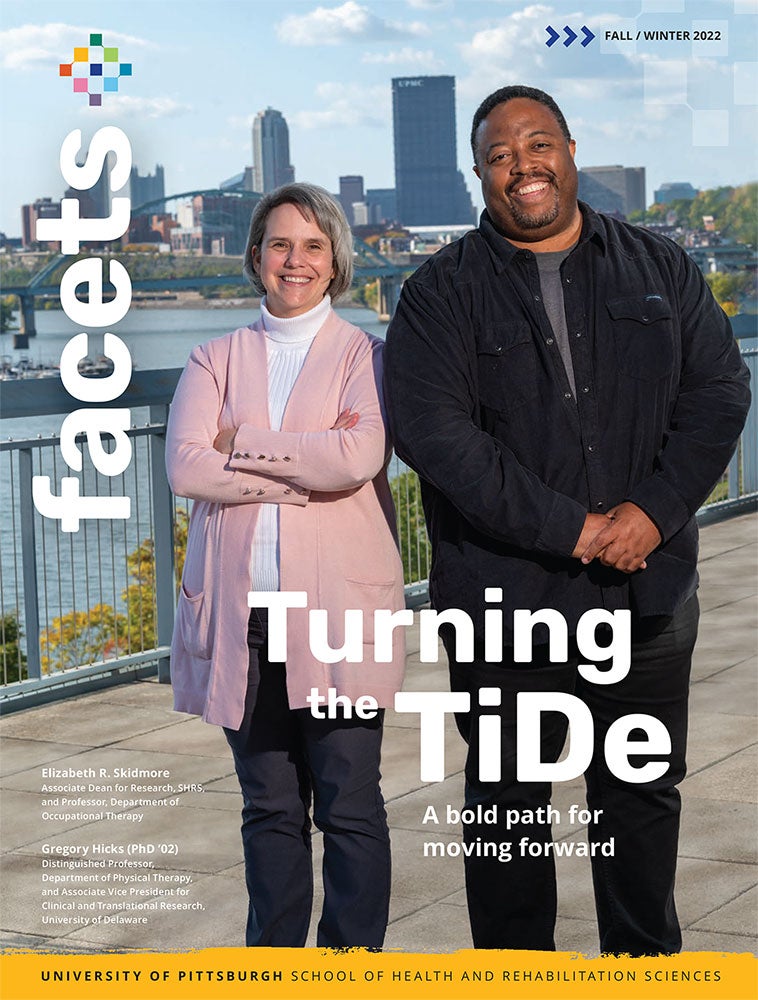
The Official Communications Piece for SHRS.
The University of Pittsburgh School of Health and Rehabilitation Sciences (SHRS) is a leader in the field of health care education, with several of our programs ranked among the best in the country and with alumni representing SHRS around the world. Inside every issue of our alumni magazine, FACETS, you’ll discover many sides of the SHRS legacy. You’ll hear how our students and faculty continue to step out boldly and confidently in the classroom, in the lab and in the community.
You’ll learn how our bold moves lead to innovations and collaborations, groundbreaking research and meaningful connections. You’ll get a sense of our past and the vision that drives us to shape the future of health care.
